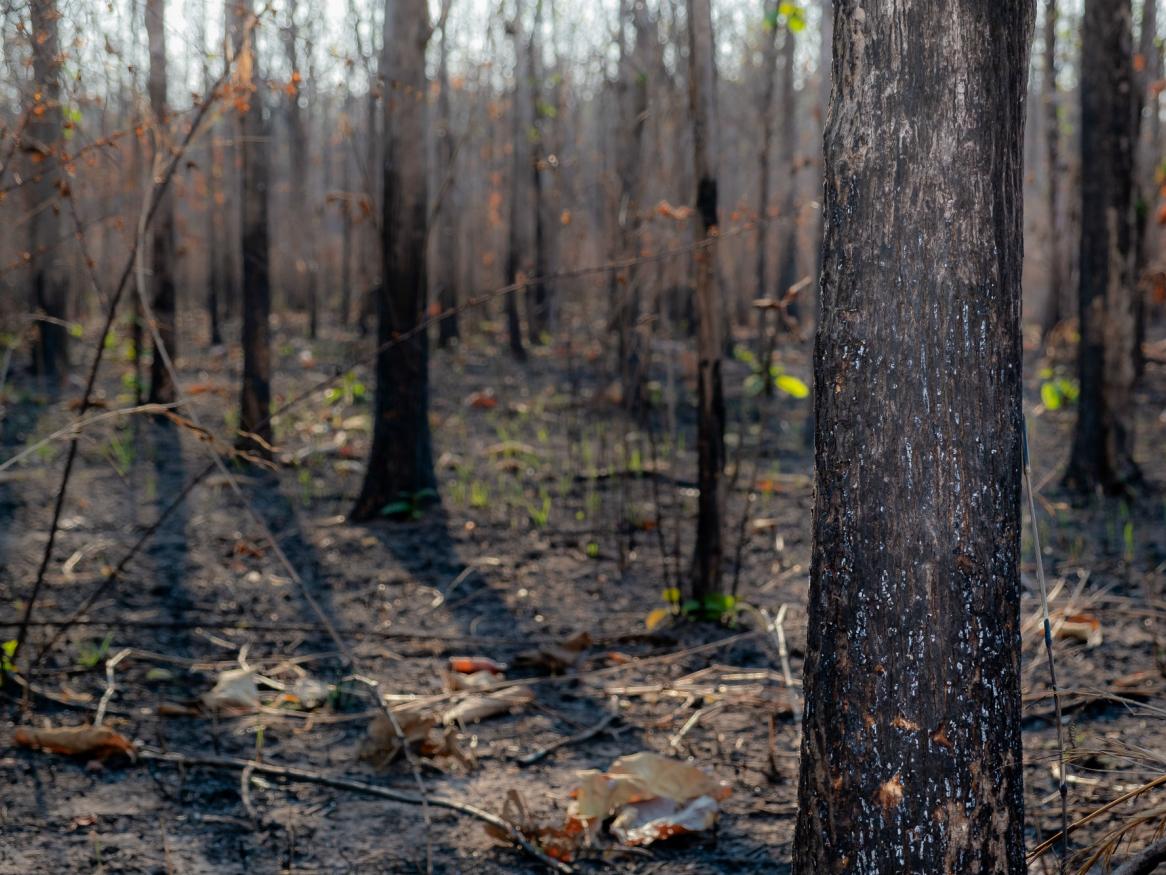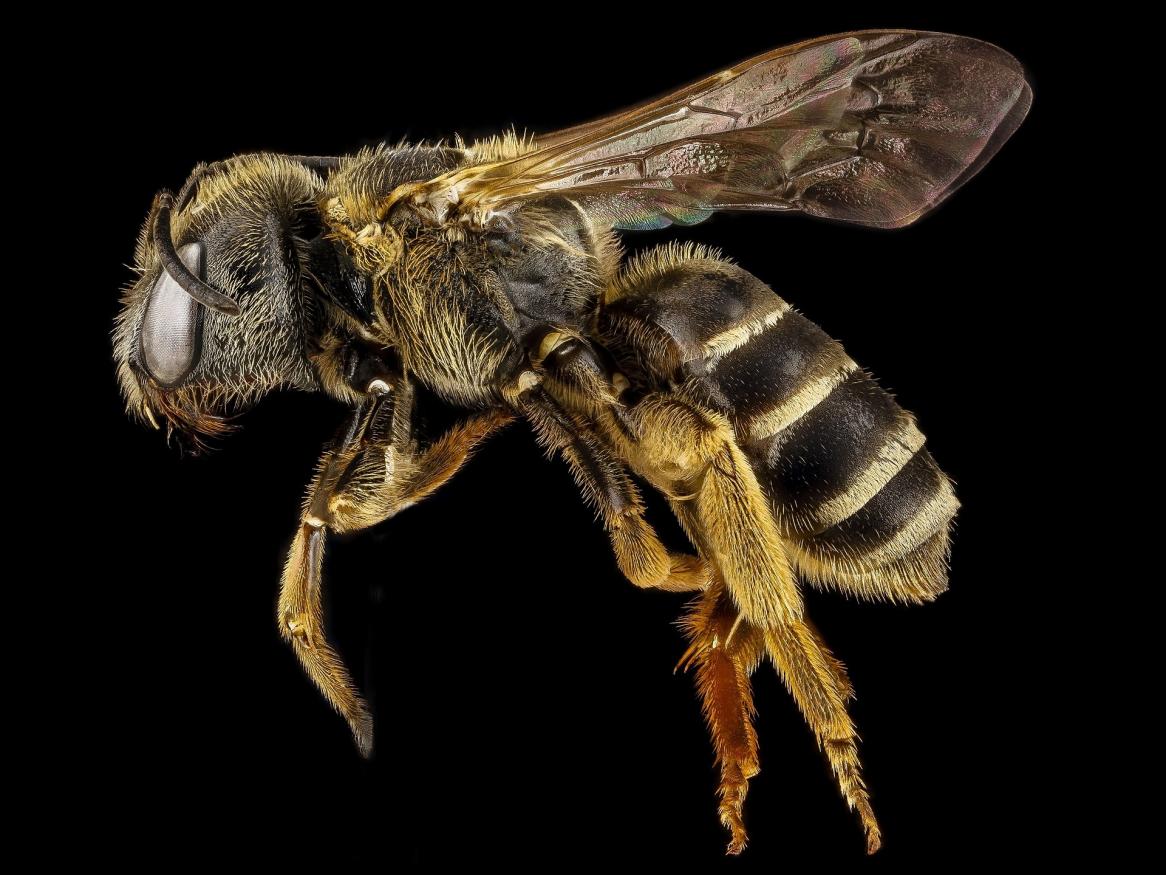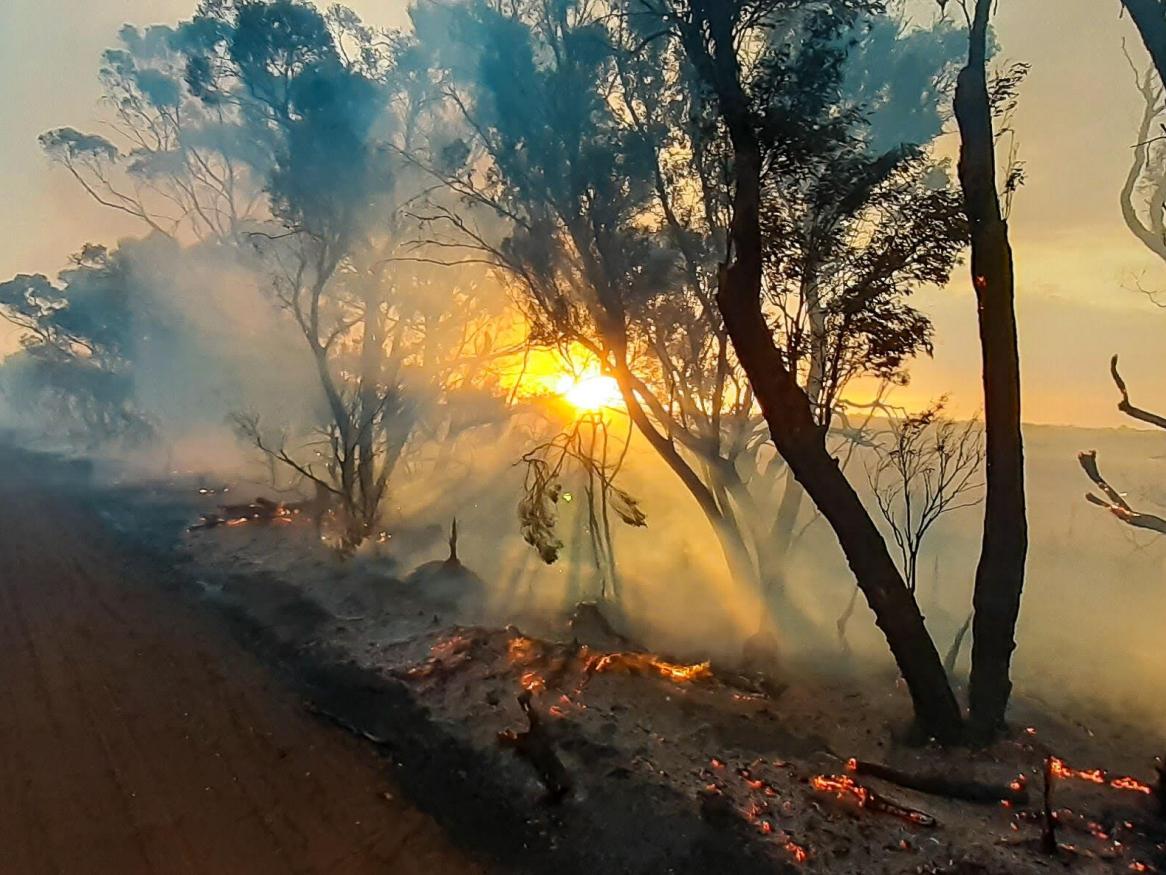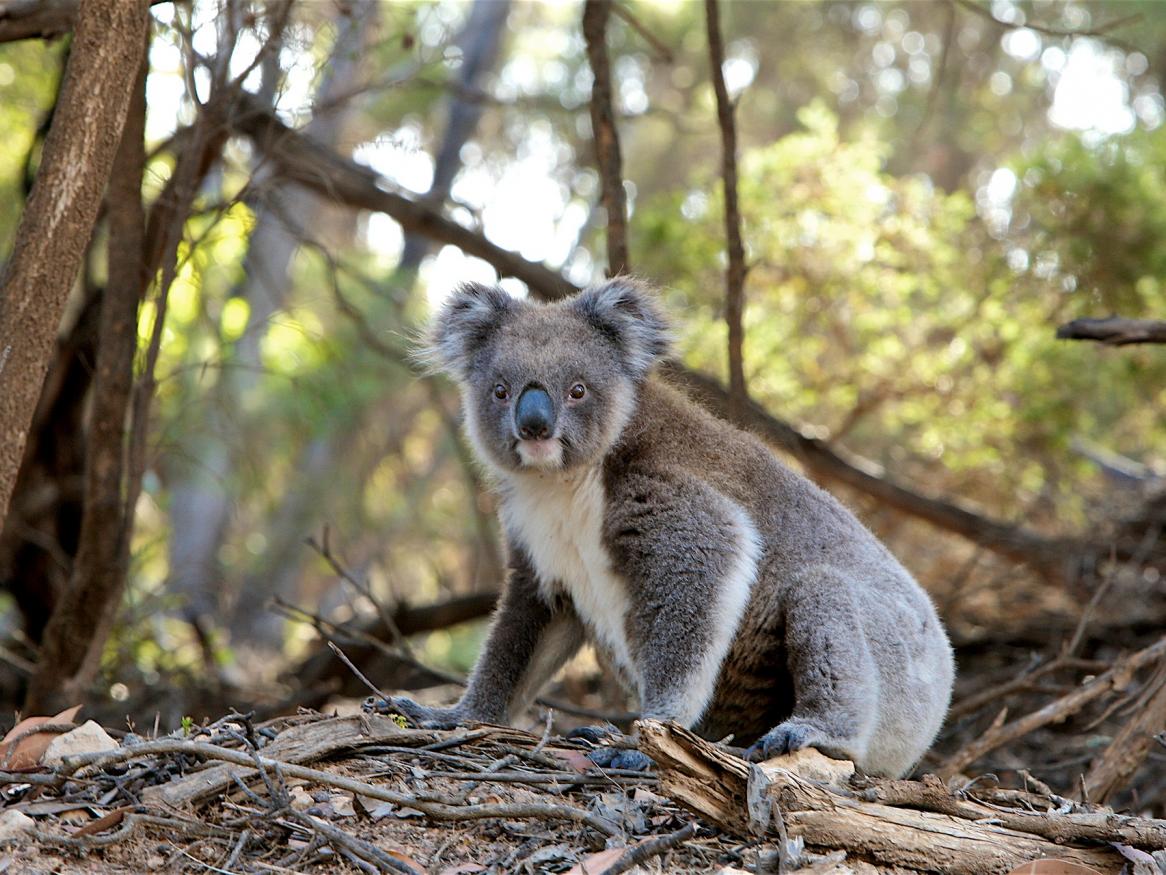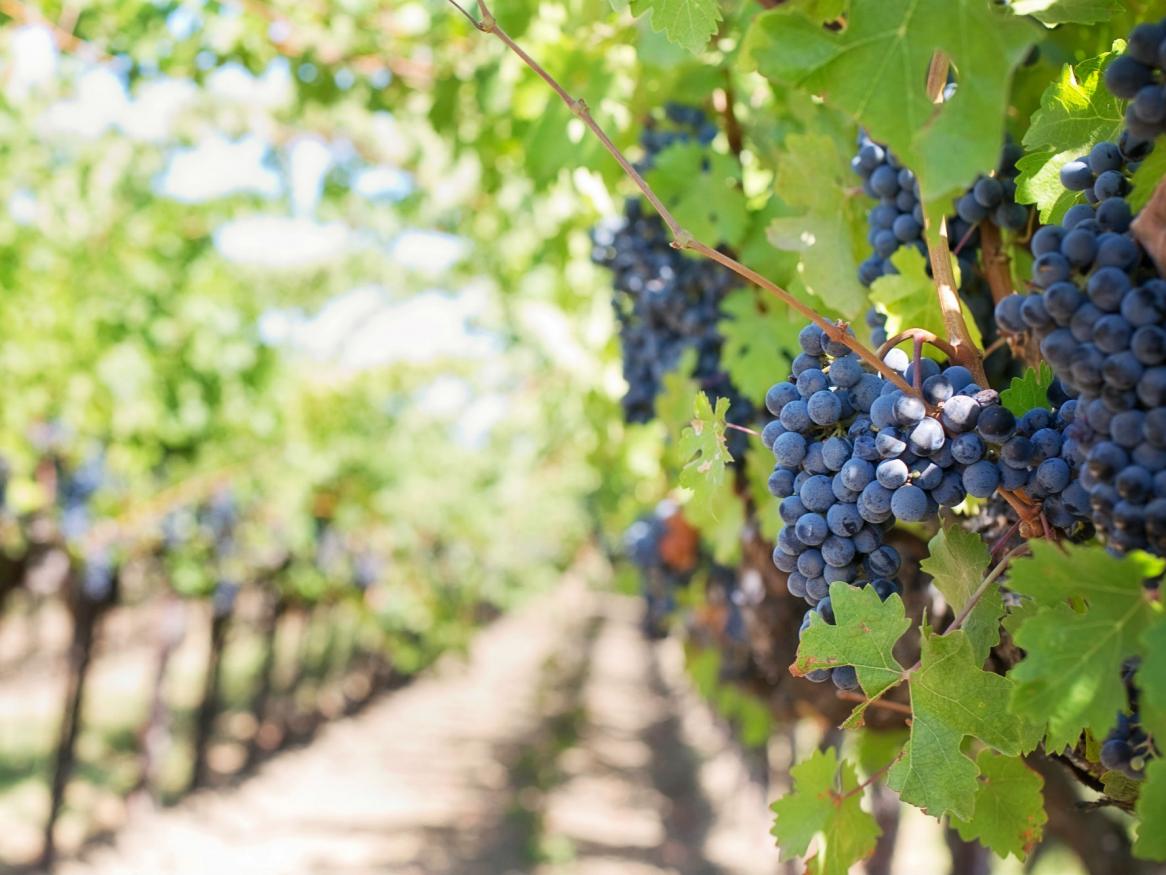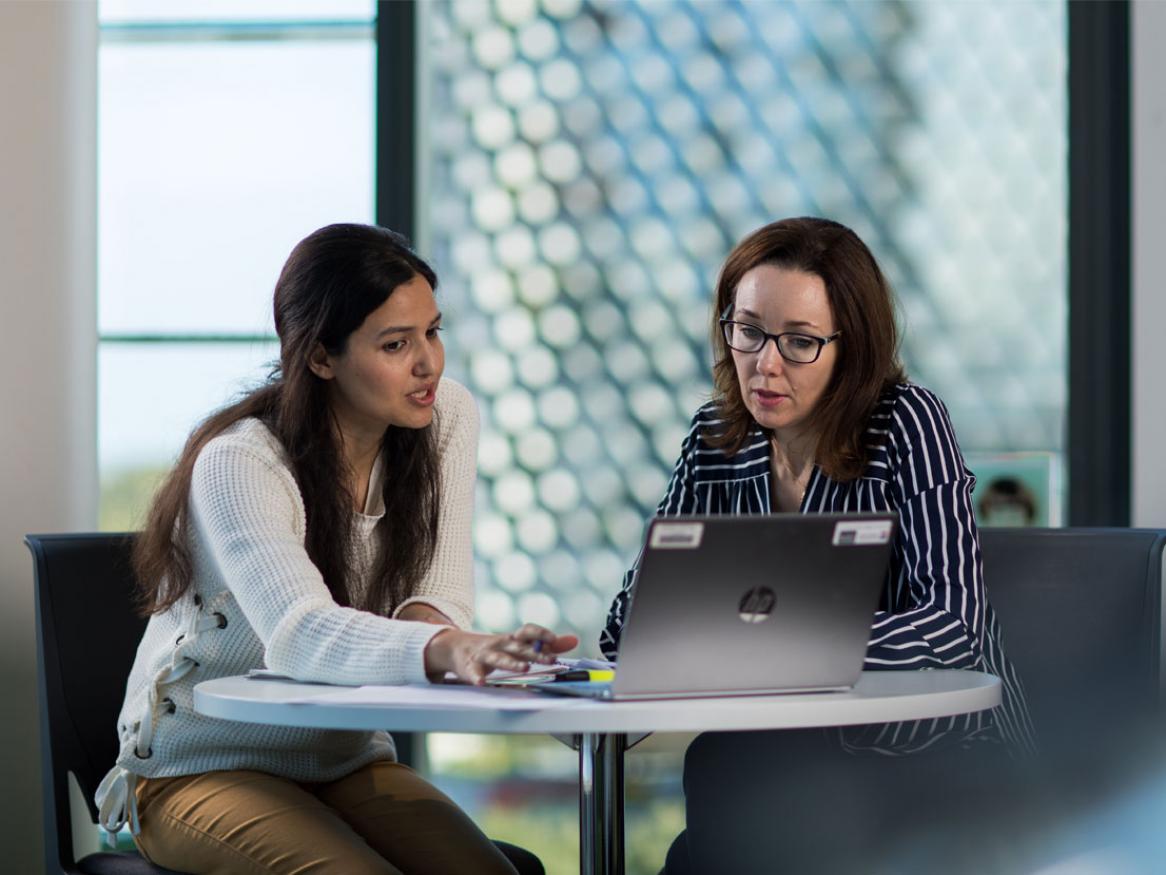Australian Bushfires Research
The 2019-2020 bushfires ravaged our nation, affecting the whole Australian community.
Solutions to guide Australia’s short- and long-term responses will draw on scientific evidence from across science, technology, engineering, mathematics, health, humanities, arts, and social sciences.
Research from the University of Adelaide will ensure Australia’s bushfire response is underpinned by the latest evidence. Here you will find examples of local ideas, experts, resources, infrastructure and facilities that are supporting these efforts.
Key projects
The 2019-2020 bushfires in South Australia
The recent shocking sequence of bushfires across the southern and eastern coast of Australia has surprised all of us.
Bushfire and the challenge to respond to new levels of environmental risk
There have been terrible bushfires this summer across southern Australia – and they are still going. Part of the reason for this disaster is the unprecedented climatic conditions that the country has been facing, including record hot and dry conditions.
Buzz off honey industry, our national parks shouldn’t be milked for money
Among the vast number of native species damaged by the recent bushfire crisis, we must not forget native pollinators. These animals, mainly insects such as native bees, help sustain ecosystems by pollinating native plants.
I made bushfire maps from satellite data, and found a glaring gap in Australia’s preparedness
On the night of January 9 2020, my wife and I secured our Kangaroo Island home and anxiously monitored the South Australian Country Fire Service (CFS) website for bushfire advice.
We forget the lessons of past disasters at our own peril
In the context of the terrible fires facing the nation, the telling reflection that “Those who do not remember the past are doomed to repeat it” has salience.
Understanding the true impact of bushfires on our Koala population
The recent bushfires have been, and continue to be, devastating for affected communities.
Helping wineries manage bushfire smoke taint
A new project to help Australia’s winemaking industry understand and respond to the impact of taint from bushfire smoke, which includes research from the University of Adelaide, has recently received funding from the Federal Government.
Local expert database
To find a suitable researcher for your next project relating to the Australian bushfires, please refer to our local expert database.
Grant funding
Learn about grant funding and current opportunities.
Key resources
-
Adelaide Microscopy
Adelaide Microscopy is a core facility of the university, which provides access and training in advanced microscopy platforms to researchers, postgraduate students and industry.
Funded by the National Collaborative Research Infrastructure Strategy (NCRIS), Adelaide Microscopy can assist with micro and nano-imaging and data collection for a diverse range of applications - ranging from geological, chemical, biological, physical, materials, medical, dental and environmental, with clients from all scientific and engineering disciplines.
Contact: microscopy@adelaide.edu.au
-
Phoenix High Performance Computing
The Phoenix High Performance Computing (HPC) service allows University researchers to improve time frames for analysis and processing of big data, increase complexity in models and simulations, and produce the best of innovative and collaborative research.
Improve research outcomes:
- Accelerate problem solving using higher capacity computing solutions - reduce run time from weeks to days
- Explore bigger grids and parameters
- Reduce element size
- Increase complexity
- Simulate many more scenarios and variables than possible on an office PC
- Larger amounts of memory available for research.
Focus on research:
- Better performance for less financial outlay
- No support or maintenance overhead
- Leverage your HPC research expertise using state-of-the-art equipment.
Contact: researchsupport@adelaide.edu.au
-
Faculty of Sciences, Engineering and Technology
The Faculty of Sciences, Engineering and Technology research facilities use advanced technology to provide training, expertise and support to research activities within the faculty, our schools and the University.
Mawson Analytical Services
The Mawson Analytical Services (MASS) facilities offer a wide-ranging service to researchers and commercial partners. Encompassing radiometric and stable isotopes analyses in conjunction with classical diffraction and chromatographic characterisation techniques, MASS has the capacity to deliver high quality data at a competitive cost with the value-added evaluation and interpretation of results by subject matter experts if required.Comprising three integrated facilities, TIMS, Stable Isotope and Biogeochemistry, the MASS professional staff provide an ideal wealth of analytical experience to meet your requirements.
Applications include geochronology, mineral exploration, petroleum geochemistry, palaeoclimatology, soil geochemistry, mineralogy, sedimentary geochemistry, forensic investigations, industrial and synthesis chemistry, environmental research & monitoring, chemical engineering and biofuel analysis.
Contact: faculty.sciences@adelaide.edu.au
The Faculty of Sciences, Engineering and Technology (SET) offers a host of research facilities, including cutting-edge test chambers, labs, workshops and equipment. In addition, the Faculty has a number of shared labs and a workshop available for use.
Contact: engtest@adelaide.edu.au
Wind Tunnels
The Adelaide Wind Tunnel research and testing facility is South Australia’s only industrial-scale wind tunnel, and the second largest in Australia. The state-of-the-art facility has a wide range of purposes and can be used for all kinds of wind engineering and aerodynamics testing.Contact: engtest@adelaide.edu.au
Graphene Hub
Hosted by the University of Adelaide, the ARC Research Hub for Graphene Enabled Industry Transformation is a collaborative research team committed to developing a sustainable graphene-based industry in Australia. The core facilities are located at the University of Adelaide with several graphene labs, with laboratory scale graphene materials production, prototyping and characterisation capabilities.Contact: graphene@adelaide.edu.au
3D Prototyping Lab
Our 3D prototyping lab houses ‘Big Rep’, the largest 3D printer of its kind in the southern hemisphere. Big Rep can print using a carbon-filled PLA to produce stronger parts. Using can check progress remotely.Contact: engtest@adelaide.edu.au
-
School of Biological Sciences
Spatial Sciences Group
The Spatial Sciences Group conducts research to improve our understanding, management and monitoring of the environment at landscape scales. The Group works in a diversity of natural and managed ecosystems, terrestrial, aquatic and marine environments, using remote sensing, geographic information systems, ecological modelling and multi-objective decision support systems to understand spatial variability, temporal dynamics, change and interrelationships in the environment.The capability of the Spatial Sciences Group is nationally and internationally unique because of a co-location of expertise in all scales of spatial imaging from unmanned aircraft to satellites, spatial big-data analysis, and environmental management.
The Spatial Sciences Group use remotely sensed images from aerial surveys, drones, Earth observation satellites and geographic information systems (GIS) for applications relevant to many aspects of bushfire assessment, monitoring and prediction. These include immediate response, medium term monitoring of impacts and recovery, through to long-term assessment of past fire frequencies to inform infrastructure and environmental management and planning.
Uncrewed Research Aircraft Facility (URAF)
The Uncrewed Research Aircraft Facility (URAF) is The University of Adelaide’s ‘drone hub’. The Facility provides the organisational infrastructure concerning the use of unmanned aircraft, or Remotely Piloted Aircraft Systems (RPAS), for a wide range of environmental and agricultural applications. It also serves as the central body for fostering partnerships and interactions related to RPAS applications between students, researchers, natural resource managers and industry partners throughout South Australia.The URAF holds the University's RPAS Operator's Certificate (ReOC) for compliant RPAS operations, functioning as the technical and legislative knowledge base for all RPAS activities involving the University or its grounds.
The Facility is also the first and only university in Australia to be a civil aviation-certified RPAS training facility. Offering a commercial drone course leading to the award of a Remote Pilot Licence (RePL) as well as ad hoc training tailored to suit your team’s individual needs.
Contact: uraf@adelaide.edu.au
Acid Sulfate Soils Centre (ASSC)
The Acid Sulfate Soils Centre (ASSC) offers a wide range of services, including, expert opinion and review on acid sulfate soil issues, and can help with a range of areas including undertaking soil survey investigation, geochemical, soil chemical, soil physical, water quality, hydrological, organic matter and mineralogical analysis.Contact: robert.fitzpatrick@adelaide.edu.au
The Terrestrial Ecosystem Research Network (TERN)
The University of Adelaide is a Partner in the Terrestrial Ecosystem Research Network (TERN).TERN measures key terrestrial ecosystem attributes over time from continental scale to field sites at hundreds of representative locations and openly provide model-ready data that enable researchers to detect and interpret changes in ecosystems.
The Network delivers quality data, tools and expertise to researchers who are working to understand Australia’s environment and so enable its management for sustainable social and economic benefit.
Contact: ben.sparrow@adelaide.edu.au
-
School of Animal and Veterinary Sciences
The School of Animal and Veterinary Sciences hosts the largest and most comprehensive veterinary facility in South Australia. The Veterinary Health Centres located at Roseworthy, provide South Australian communities with the best and most comprehensive healthcare and medical treatment to all species of animals. The facility’s veterinarians are involved in innovative university research which provides them with extended knowledge and evidence-based practices in veterinary medicine.
The School has experience in emergency wildlife care and post fire wildlife recovery re-introduction and supplementation. Following the 2015 SA Pinery fires, the School developed additional expertise in the management of severe burns and critical care of affected animals.
Contact: vet_reception@adelaide.edu.au
-
Waite Research Precinct
The Waite Campus, the largest concentration of agricultural research and teaching expertise in the Southern Hemisphere. Much of the $270m+ worth of research infrastructure at the Waite Campus is shared and came about through joint investment. Researchers from across the Campus share the facilities and resources, some of which are also available to outside organisations on a user-pays basis.
The Plant Accelerator
The Plant Accelerator is a node of the Australian Plant Phenomics Facility, a national research facility established under the National Collaborative Research Infrastructure Strategy (NCRIS).Digital imaging technologies, high capacity computing and robotics are combined at The Plant Accelerator to allow automated, high throughput, non-destructive measurements of plant growth and function (“phenomics”). These resources are situated in a purpose-built facility, which also houses state-of-the-art greenhouses, growth rooms, laboratories and seed storage facilities.
The facility provides access to national and international scientists from publicly or commercially funded organisations.
Contact: info@plantaccelerator.org.au
WIC Winemaking Services
WIC Winemaking Services is a specialist contract winemaking service with a focus on small batch wines. Established as a joint venture between The Australian Wine Research Institute (AWRI) and the University of Adelaide, its purpose is to support the Australian wine industry by providing high quality small- and pilot-scale wines for research and commercial projects.Contact: WICWinemakingServices@awri.com.au
-
Centre for Global Food and Resources
The University of Adelaide’s Centre for Global Food and Resources (GFAR) has a global reputation for creating and applying knowledge on secure and resilient global food and resource systems.
Based in the heart of Australian primary production and agribusiness, the Centre understands both the capacity and drivers of success of Australian producers, agribusinesses and supply chain participants.
This unique Centre conducts world-class innovative interdisciplinary research, using a whole of systems approach, addressing economic, policy, agribusiness and social issues affecting global food systems. In addition, the Centre connects relevant partners ranging from industry organisations and enterprises to government institutions and policy makers. Our networks extend across the globe with strong research partnerships with agricultural, food, health and environmental scientists, as well as industry, government and NGOs.
Contact: globalfood@adelaide.edu.au
-
Adelaide Law School
The Adelaide Law School are committed to the rule of Law and the promotion of the highest standards of ethical conduct, professional responsibility, and community service. With the aim of contributing to the social good, staff in the School examine and critique the law from diverse perspectives, discovering new knowledge and advocating for change.
Through the South Australian Law Reform Institute, staff and students actively engage with local law reform. The Adelaide Law School student law clinics present an interface with the community and make the law accessible to all. School researchers engage in public discourse and commentary on public policy and diverse community needs in a meaningful and timely way.
The Adelaide Law School offers a range of expertise specifically linked to the bushfire crisis, including:
- Legal framework for deployment of the Australian Defence Force (ADF) in national disaster relief
- Property law research exploring the challenge posed by climate change and environmental harm;
- Water allocation law and use;
- Land use planning law, vegetation clearance laws and reservation of land for conservation purposes;
- Climate change law with a particular emphasis on Australia's obligations under the Paris Agreement;
- Australian biodiversity law and the development of anticipatory biodiversity laws;
- Discrimination law and policy; and
- Civil liability advice.
Contact: lawenquiry@adelaide.edu.au
-
Adelaide Business School
The Adelaide Business School has a wide range of expertise covering such areas as accounting, finance, marketing, management, family business, entrepreneurship, and innovation.
It is also home to the University’s ThincLab Innovation Hubs/Business Incubators, where it provides a wide range of services to assist:- Intending entrepreneurs establish and grow their startup ventures;
- Existing entrepreneurs transform and accelerate the growth of their businesses; and
- Larger corporations commercialise new products and technologies.
ThincLab services include:
- in situ location in one of the ThincLabs
- Located in Metropolitan Adelaide on the University’s City Campus, at its Waite Campus where there is a focus on agriculture, food, and wine, in France located in the Champagne region, Singapore, and in New Zealand in partnership with the University of Canterbury
- Mentoring services, and
- A range of entrepreneurial and commercialisation workshops and courses that focus on topics such as ideation, design thinking, creativity and innovation, prototyping (digital and 3D printing), pre-acceleration (eChallenge), and venture acceleration.
Contact: Zrinka.tokic@adelaide.edu.au
-
School of Social Sciences
The School of Social Sciences engage with a number of industries including government, alumni and the wider school community to make a difference in society. The Department of Geography, Environment and Population offers a wide range of programs that explore important issues, such as climate change, global migration and urban development from a wide variety of perspectives.
Contact: socialsciences@adelaide.edu.au
-
School of Architecture and Built Environment
The School of Architecture and Built Environment can offer expertise or conduct research relating:
- Eco-friendly and resilient building design and constructions;
- Implementation of codes, standards and guidelines;
- Development of construction techniques/materials that are more resilient to extreme heat and fires;
- Landscape planning, management and design strategies, for resilient to extreme heat and fires;
- Research around community engagement/building adaptive capacity to prepare for bushfires; and
- Expertise/networks regarding building Indigenous partnerships around theme of land management.
Contact: askecms@adelaide.edu.au
-
School of Public Health
Adelaide Exposure Science and Health (AESH)
Adelaide Exposure Science and Health (AESH) is at the forefront of occupational and environmental health practice in Australia. AESH is recognised nationally and internationally as leaders in academic research, consulting and specialist training in the field.
AESH offers a diverse range of research, field-based consulting, laboratory, and education and training services to industry, government and the community.Contact: oeh@adelaide.edu.au
Adelaide Health Technology Assessment (AHTA)
Adelaide Health Technology Assessment (AHTA) undertakes evidence-based assessments of health interventions to inform policy and practice.Services include:
- Health care evaluation
- Pharmaceutical evaluation
- Horizon scanning
- Disinvestment
- Methodological research
- Guideline development
- Ethics Consulting
- Integrated Research Support
Contact: ahta@adelaide.edu.au
-
Research Institutes
Environment Institute
The Environment Institute is committed to environmental excellence. To enable this, it brings together leading water and climate scientists and researchers in fields including conservation biology, climate adaptation and mitigation, biodiversity, marine biology, landscapes, palaeontology and genetics. The Environment Institute have compiled a comprehensive list of willing experts, ready to aid in the Bushfire Recovery. View or download the Environment Institute’s Bushfire Expertise list here.Contact:environment@adelaide.edu.au
Waite Research Institute (WRI)
The Waite Research Institute (WRI) stimulates and supports research and innovation across the University of Adelaide and its partners that builds capacity for Australia's agriculture, food and wine sectors. Waite researchers are active in a wide range of agricultural, wine and food-related disciplines. The Waite Campus is home to nearly 70% of Australia's wine and grape research and extension capability. Waite researchers are active across the entire value chain, from understanding the interactions of vines with the environment to sensory research and consumer preferences.Contact: wri@adelaide.edu.au
Australian Institute for Machine Learning (AIML)
The Australian Institute for Machine Learning (AIML) is one of six Research Institutes at the University of Adelaide, and a world-leader in the application of machine learning methodologies. Machine learning underpins the business models of the largest corporations and has the potential to deliver massive, social, economic and environmental benefits. AIML world-class research strengths lie in machine learning and the methods that support this; artificial intelligence, computer vision and deep learning. The Institute is committed to producing outstanding research that is engaging, innovative and importantly can be applied to real-life challenges.Contact: aiml@adelaide.edu.au
Institute for Mineral and Energy Resources (IMER)
The Institute for Mineral and Energy Resources (IMER) operates at the international forefront of the mineral, energy and resource sectors, showcasing our finest talent in large-scale research and innovation outcomes, with the capacity to pursue higher-risk, cutting-edge projects. The Centre for Energy Technology (CET) is delivering innovative technologies for sustainable, secure and affordable energy. CET works with industry to reduce emissions now, by retro-fitting innovative technologies to existing systems, and is also developing new carbon neutral and carbon negative technologies to replace existing heat, power and fuel production systems.The Centre has over $12 million in advanced technical research infrastructure to support the development of clean energy technologies, including:
- Laser diagnostic systems and research laboratories
- Micro-algae cultivation and processing facilities
- Photocatalysis Laboratory
- Wind tunnel
- Biomass and Coal Research Laboratory
- Solar simulation facilities
- Energy Storage Testing Facility
Contact: imer@adelaide.edu.au
Stretton Institute
The Stretton Institute brings together researchers and experts from across the University of Adelaide to address key policy issues of relevance to government. The Institute has a strong social justice focus and drives a multi-disciplinary and multi-method research approach.Contact: strettoninstitute@adelaide.edu.au

